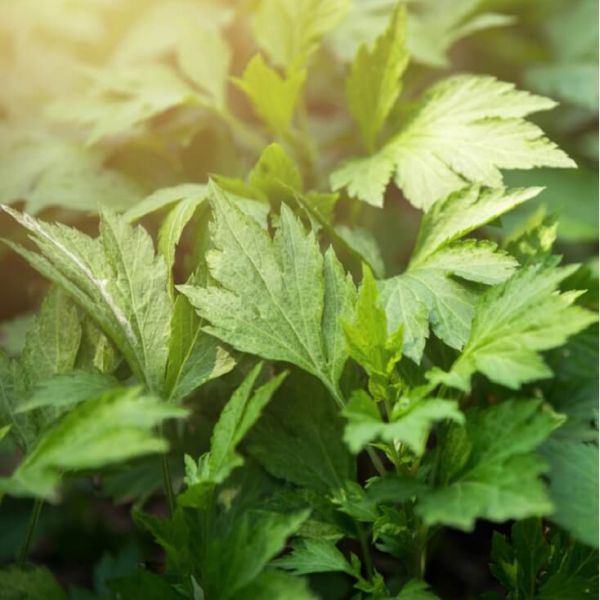Mugwort (Artemisia vulgaris L.) is a perennial plant in the Asteraceae family. The plant is native to Northern Europe, and Asia; it can also be found in many parts of North America. The mugwort plant grows to 4 feet in height, but occasionally reaches heights of up to 6 feet. Its angular reddish-brown stems have bitter-tasting leaves that have a sage-like aroma. The plant blooms with yellow or dark orange flowers in the summer.
People use mugwort for stomach and intestinal conditions, irregular periods, lack of energy, scarring, and other conditions, but there is no good scientific evidence to support these uses.
Mugwort is commonly used to treat many health conditions. Although there are preliminary studies that reveal mugwort’s potential health benefits, there is not enough clinical research evidence to definitively support the safety and efficacy of mugwort for treating many health maladies, including:Colic;Diarrhea, vomiting, constipation, and other gastrointestinal conditions;Headache;Epilepsy;Irregular menstrual periods;Anxiety;Hypochondria (obsession with being ill);Fatigue;Sleep problems;Restlessness and irritability;Depression.
Mugwort has been used in the practice of “moxibustion,” as part of traditional Chinese medicine (TCM) for thousands of years. Moxibustion involves rolling mugwort into sticks or cones, igniting it, then waving it over the area that is to be treated. This serves to stimulate and tonify the acupuncture point with heat and the herb’s chemical compounds.
The parts of the mugwort plant that grow aboveground are used to make essential oil, which is composed of several therapeutic chemicals (including camphor, pinene, and cineole). This chemical composition has diverse health-promoting properties including the plant’s antioxidant, antibacterial, and antifungal effects.
Another chemical that has been extracted from mugwort is called artemisinin, which is thought to have antitumor activity.
In addition, the chemicals in mugwort are thought to stimulate the uterus to contract, promoting menstrual flow. These chemicals are thought to lend themselves to the labor process in childbirth. This may result in a reduction in the dose of oxytocin to stimulate labor contractions.
There is not enough medical research data to prove—or disprove—the safety of mugwort.
Mugwort is likely unsafe for pregnant and breastfeeding women; it may cause the uterus to contract, inducing miscarriage. Mugwort’s use has not been established as safe for infants, therefore, breastfeeding women should avoid taking mugwort.
Mugwort is commonly used in cooking to flavor many foods and beverages, including fish, meat dishes, desserts, pancakes, soups, salads, beer, and more. Mugwort was used in Europe to flavor beer long before hops were discovered.
Post time: Aug-07-2020
